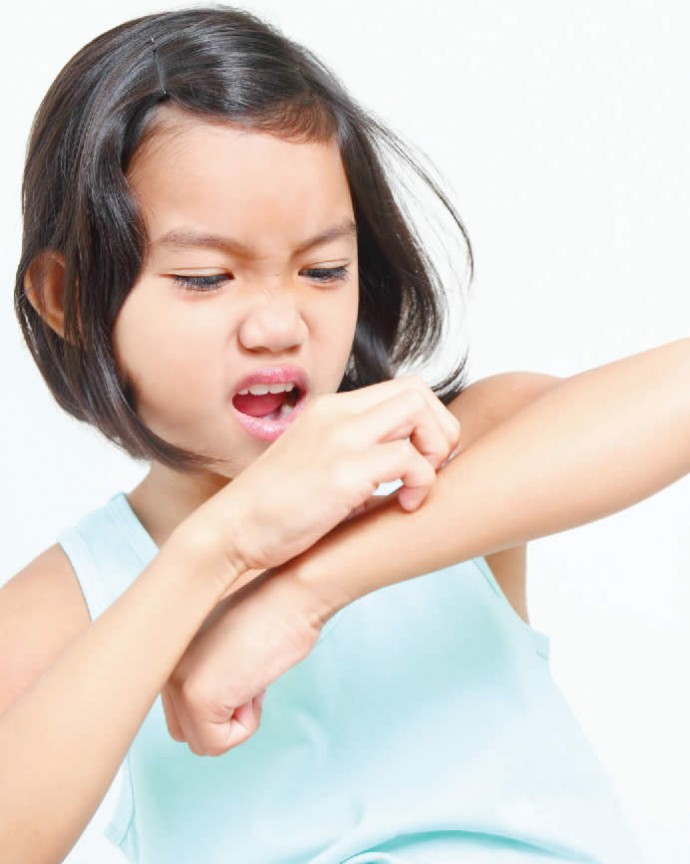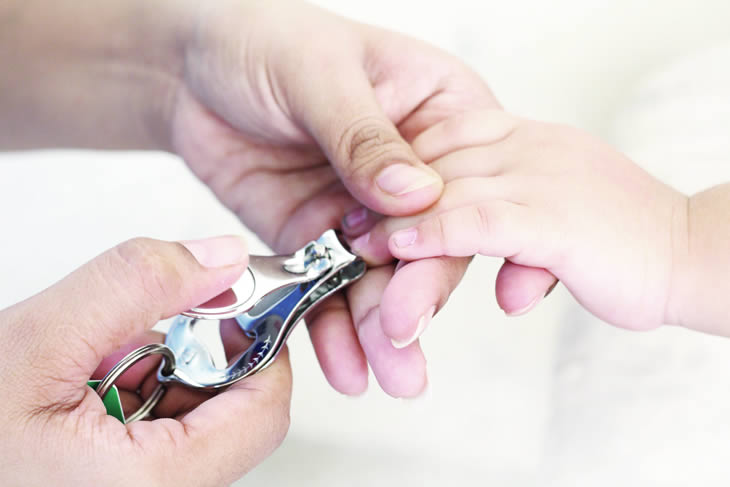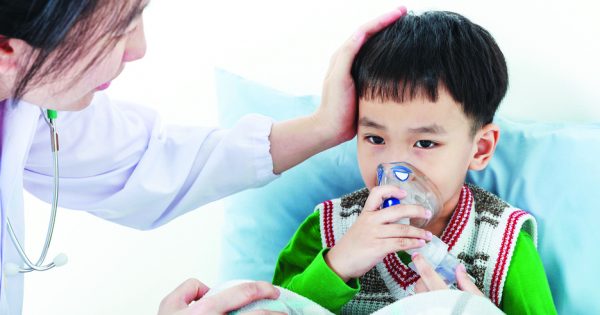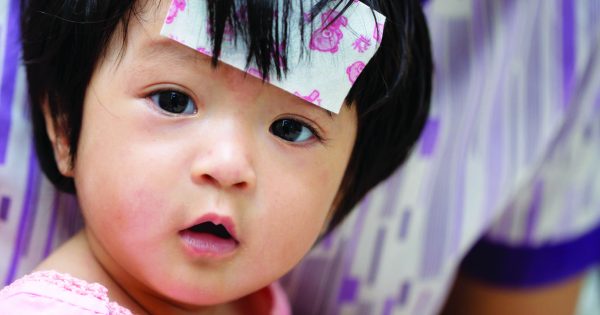Most children get rashes at one time or another. They can be itchy and irritating, but they usually go away on their own. Unfortunately, in some cases, a rash does not go away or the skin may become so inflamed that medical attention is required.
Eczema is a common problem that causes the skin to become inflamed. The itching can get intense, which can be a nuisance, especially for infants and young children. Scratching will make the problem even worse. In fact, damage to the skin during eczema often occurs due to scratching. Severely affected skin may develop deep, painful cracks, also called fissures. Defects in the skin barrier could allow moisture out and germs in, causing skin to become inflamed. Occasionally, small and fluid-filled blisters may also form.
What causes atopic eczema?
Atopic eczema is caused by dynamic interaction between genetic and environmental factors. It is not a condition with single causative agent or factor, but it is thought to be linked to skin barrier detect (porous outer skin layer) and an overactive response by the body’s immune system to an irritant or allergen in the environment (such as dust, moulds, pollens and animal dander). It is this response that causes the symptoms of eczema, also known as atopic eczema. Atopic eczema is the most common type of eczema. Research shows that atopic eczema can affect two in every 10 people in Malaysia and about 10% – 14% of children below the age of 14. This is especially true among the urbanised communities.
Another way that symptoms of eczema can flare up is by coming into contact with rough or coarse materials that may cause skin to become irritated. Exposure to heat (sweating) or cold (dry air), or upper respiratory infections may also cause an outbreak. Stress could aggravate the condition.
Did you know?
The incidence of eczema is on the rise, with as many as one in four children affected by it. In Malaysia, prevalence of atopic eczema among primary school children was around 12-13% in 2001 – please refer to ISSAC study. One potential explanation for the rise is the increased frequency of bathing and use of soap and detergents. Air pollution from rapid urbanisation can also cause your child’s skin to become itchy and inflamed, or aggravate his eczema.
Some experts think that children are genetically predisposed to atopic eczema, which means they inherit characteristics that make them more vulnerable to the condition. Children who have a family history of eczema, asthma or hay fever are more prone to developing atopic eczema. About half of the kids who get eczema will also develop hay fever or asthma. However, it is not contagious and cannot be transmitted from person-to-person.
Watch out for the signs
Signs and symptoms of atopic eczema typically appear within the first few months of life, and almost always before a child turns five. These include:
- Red to brownish-gray skin patches
- Scaly or cracked skin
- Small bumps may appear on the cheeks, forehead, or scalp (may also spread to the arms and legs, in the front of the bend of the elbow, behind the knees, and on the ankles, wrists, face neck and upper chest)
- Itchiness that can be severe (almost always).
Scratching the skin can cause it to become thick and red or bleed and crust, thus creating wounds that may become infected.
However, most patients find the itch to be intolerable, which results in a vicious cycle of itch-and-scratch, and ends up with bleeding and pain.
Factors that worsen eczema
Most people with eczema will find that their symptoms are made worse by common aspects of daily living such as frequent showering, soap, detergent, hot weather or overheating in bed at night. Perfumes, fragranced skin lotions, and strongly scented products can also irritate the skin and cause your child’s skin to become itchy and inflamed, or aggravate his eczema.
Coping with eczema
As eczema has no cure, the main goals of treatment are to relieve discomfort by reducing the itch and increasing the number of flare-free days for the patient.
Indeed, an Eczema Patient Impact Survey suggests that 62% of caregivers are constantly worried about their child’s next flare-up.
Traditionally, treatment has focused solely on treating flare-ups when they occur, with clinicians prescribing short-term doses of topical steroids and advising the use of moisturisers to keep the skin moist.
When there is an eczema flare-up, doctors have to prescribe steroids to manage and calm the skin back into remission (when the red patches and sores subside), which is not advisable for long-term usage due to its accompanying side-effects.
It is important to act proactively to ensure that the skin remains moisturised, even when the patient’s eczema is under control.
The application of emollients or moisturisers will provide a barrier to protect the child’s skin from water loss and further damage, whilst keeping the skin supple.
It is crucial that parents choose a moisturiser with the right formulation, and most importantly, is effective to help treat the child’s condition, and prevent the skin from entering the infamous scratch-itch cycle.
Apart from treatment, there are a few other self-help remedies that children with eczema can practice to keep the itchiness away. They should avoid wearing scratchy materials that could irritate the skin such as pure wool, polyester or acrylic. Instead, go for soft, smooth materials like cotton.
Try to avoid your child from taking long, hot baths as this can dry up his or her skin. Frequent short baths with the use of only lukewarm water is fine to rinse the body after exercise as sweat acts as a skin irritant. After bath, immediately apply some lotion on your child’s skin while it’s still moist, to help keep the moisture in the skin.
If your child has eczema, it is a good idea to keep his or her fingernails short as longer nails are more likely to injure your child’s skin when he or she scratches.
Managing these lifestyle factors may help control the symptoms of eczema and reduce the frequency of flare-ups.
Will eczema ever go away?
The good news is, most children will outgrow the symptoms of eczema before school-going age. More than half of the kids who experience eczema symptoms in childhood will grow out of it by the time they are teenagers.
However, some kids will have eczema into adulthood. Remissions can happen and can persist for year . Dry and irritable skin from the condition also tends to linger.








Comments